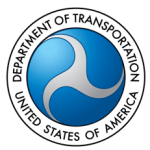- Industry: Government
- Number of terms: 13754
- Number of blossaries: 0
- Company Profile:
Those causes of loss for which the carrier is not legally liable. The elemental risks of ocean transport.
Industry:Transportation
A dry bulk vessel of 35,000 to 49,000dwt. (Note that a “Handy” drybulk carrier is from 10,000 to 34,000dwt.) A “Handymax Tanker” is a liquid bulk carrier of 10,000 to 60,000dwt.
Industry:Transportation
All three clauses are used as needed on the bill of lading to exclude the carrier from liability when the cargo is loaded by the shipper.
Industry:Transportation
A certificate issued by the U.S. Department of Agriculture to satisfy import regulations of foreign countries; indicates that a U.S. shipment has been inspected and found free from harmful pests and plant diseases.
Industry:Transportation
A rate applicable to or from a group of points.– A special rate applicable to several different articles in a single shipment.
Industry:Transportation
Any place to which ships may resort for shelter, or to load or unload passengers or goods, or to obtain fuel, water, or supplies. This term applies to such places whether proclaimed public or not and whether natural or artificial.
Industry:Transportation
Loaded containers moving within the railroad system that are not clearly identified on any internally generated reports.
Industry:Transportation
The weight, in tonnes of 2,240 pounds, of the vessel and its contents. Calculated by dividing the volume of water displaced in cubic feet by 35, the average density of sea water.
Industry:Transportation
The act of calling for freight by truck at the consignor’s shipping platform.
Industry:Transportation
